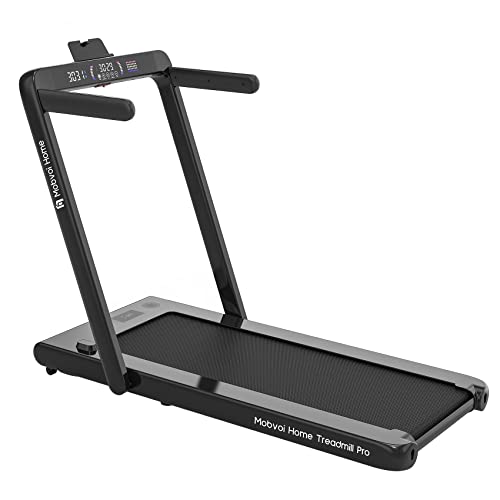A Provocative Rant About New Treadmill
The Essential Guide to Buying a New Treadmill: What You Need to Know
As fitness lovers continue to look for flexible and efficient methods to maintain their physical health, treadmills stay a staple in home and industrial health clubs alike. The innovation and features of treadmills have actually advanced considerably in recent years, making now an outstanding time to consider investing in a new treadmill. This article intends to assist prospective buyers through important aspects to think about, various kinds of treadmills offered, and often asked questions to ensure they make an informed choice.
Comprehending Treadmill Types
Before diving into specific brands, it's worth understanding the primary types of treadmills offered in the market. This overview will help individuals figure out which type best fits their fitness requirements and budget plan.
1. Handbook Treadmills
- Description: These treadmills do not depend on electrical energy and are powered entirely by the user's movement.
- Pros:
- Generally less expensive.
- Compact and light-weight, making them simple to shop.
- Cons:
- Limited features compared to motorized treadmills.
- Less appropriate for high-intensity exercises.
2. Motorized Treadmills
- Description: These treadmills come geared up with electric motors that help with motion and enable adjustable speed settings.
- Pros:
- Offer a wide variety of speed and incline choices.
- Frequently equipped with advanced technology, consisting of exercise programs and heart rate displays.
- Cons:
- More pricey and require more upkeep.
- Much heavier, making them tough to move.
3. Folding Treadmills
- Description: These treadmills can be folded for convenience, making them an outstanding option for those with minimal space.
- Pros:
- Space-saving style.
- Still uses motorized alternatives.
- Cons:
- May sacrifice some stability and toughness for portability.
4. Business Treadmills
- Description: Designed specifically for gyms and fitness centers, these treadmills are developed with more resilient materials.
- Pros:
- High-quality building and durability.
- Features created for intensive use.
- Cons:
- Generally more pricey and larger in size.
Comparison Table of Treadmill Types
Treadmill Type
Source of power
Key Features
Price Range
Perfect For
Handbook
None
Standard functionality
₤ 100 – ₤ 500
Novices, spending plan users
Motorized
Electric
Adjustable speed/incline
₤ 500 – ₤ 3,000
All physical fitness levels
Folding
Electric
Space-saving functions
₤ 300 – ₤ 1,500
Minimal space users
Business
Electric
Durability and performance
₤ 1,500 – ₤ 8,000
Gyms, heavy use
Secret Features to Look For
When purchasing a new treadmill, several key features should be considered:
Motor Power (HP): A more powerful motor (a minimum of 2.5 HP) is necessary for running and for users who prepare to utilize the treadmill routinely.
Running Surface: Consider the size of the belt. visit the following internet page and larger running surface area can accommodate longer strides and provides much better safety.
Incline Options: Adjustable slope can include intensity to exercises and target different muscle groups.
Workout Programs: Many treadmills provide integrated exercise programs that can guide users through numerous exercises and regimens.
Display Features: A clear screen makes it possible for users to track their speed, distance, calories burned, and heart rate more quickly.
Cushioning: Adequate shock absorption can minimize the danger of injury and provide a more comfy running experience.
Innovation Integration: Features like Bluetooth connection, mobile app integration, and integrated speakers can improve the workout experience.
Often Asked Questions (FAQs)
Q1: How much should I spending plan for a treadmill?
A: Budget can differ based upon features and quality. Manual treadmills begin around ₤ 100, while motorized designs can range from ₤ 500 to ₤ 3,000, depending upon innovative functions.
Q2: How typically should I keep my treadmill?
A: Regular upkeep, including lubricating the belt and checking the motor, must be done monthly. Inspect the treadmill for wear and tear regularly.
Q3: Can I drop weight with a treadmill?
A: Yes, regular use of the treadmill, integrated with a healthy diet plan, can aid with weight-loss. Including interval training increases strength and calorie burn.
Q4: Is it better to work on a treadmill or outdoors?
A: Both have benefits. Treadmills supply a controlled environment and cushioning, while outside running deals varied surroundings and natural inclines.
Q5: Do I need special shoes for using a treadmill?
A: While particular treadmill shoes aren't required, using good-quality running shoes developed for support, cushioning, and stability is a good idea.
Purchasing a new treadmill can significantly affect one's fitness journey, offering opportunities to work out in your home regardless of climate condition. By comprehending the types of treadmills available and thinking about important features, people can pick a design that fits their way of life and fitness goals. Whether going for casual walks or intense running sessions, the right treadmill can change workout regimens, making them more pleasurable and reliable. With the increase in technology and innovative styles, the treadmill stays a classic and valuable tool in personal fitness.
